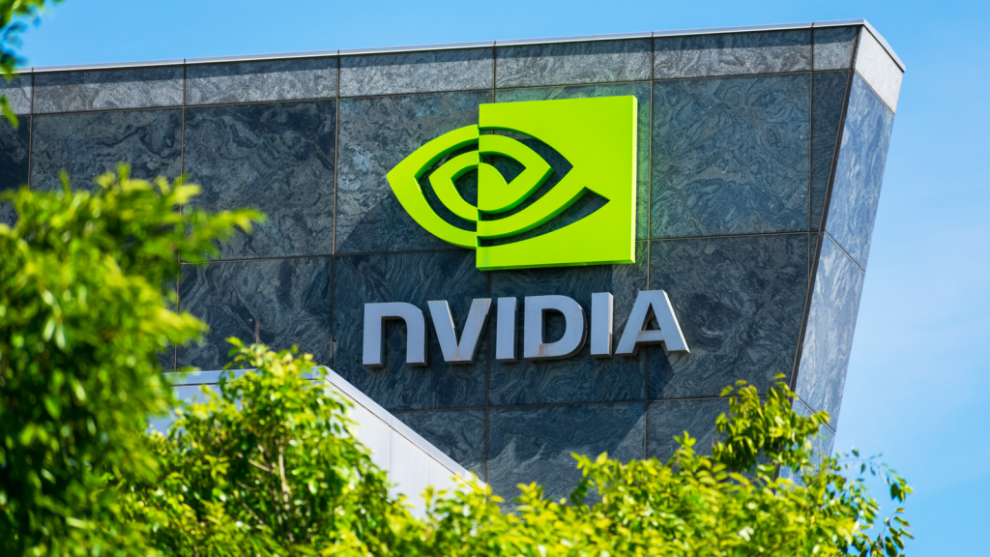So far this year, the only advice you’ve needed with Nvidia (NASDAQ:NVDA) stock has been to not fight the tape.
With the emergence of the generative artificial intelligence mega-trend at the start of 2023, NVDA stock has zoomed from $150 per share, up to $200, $300, and most recently, $400 per share.
However, with the chip maker’s recent move to a lofty price level, the stock has encountered some resistance. Based on a stock chart, it may even seem as if Nvidia is about to top out, soon followed by a sharp reversal to lower prices.
It’s not as if that shatters the bull case. Considering some other factors, is a further move higher possible?
To answer this question, let’s dive in and take a closer look.
The Great Debate With NVDA Stock
As a strong-performing and wide-followed stock, it’s easy to find both bullish and bearish arguments out there about Nvidia, regarding the next likely move for shares.
The NVDA stock bull case, while there is some hype baked into it, is mostly substantive. When it comes to producing the GPUs needed for AI applications, the chip maker clearly has the edge. That’s evident from Nvidia’s most recent earnings release.
Based on the results, as well as updates to guidance, the company appears poised to make a fast recovery, as AI demand outweighs the still-weak demand from non-AI end users of its chips.
Once its non-AI business bounces back as well, per some sell-side forecasts, earnings growth could take off in a big way in the coming years. Justifying further climbs in price for NVDA.
That said, those holding a bearish view make a convincing argument as well. In their view, Nvidia’s valuation (5o.8 times forward earnings) more-than-accounts for future AI-related growth.
With this, shares are vulnerable to a severe price correction, whenever the “AI bubble” deflates. Like all economic bubbles, it’s a question of “when,” not “if,” it bursts.
Which Side Will Prevail?
Both sides of the NVDA stock debate may make valid points, but what’s more important is which view will prevail. Unfortunately, the answer to this is far from concrete.
Given that talk of AI continues to dominate not just the financial news headlines, but general news headlines as well, it’s clear that “AI mania” has yet to slow down. Alongside this, the S&P 500 index has re-entered a bull market, and macro concerns among investors have continued to ease.
If these trends continue, at the very least, it may be enough to keep NVDA steady ahead of earnings. After earnings, these trends, coupled with an earnings topper, could drive another post-earnings super rally, sending the stock up to $500 per share.
Still, there is a major event this week that could throw the bulls in for a loop, and vindicate the bears: the Federal Reserve’s next decision on interest rates.
Most believe that the Fed will take a pause on rate hikes, which could give the recent market rally further runway. However, not only could the central bank unexpectedly raise interest rates. Even an expected pause could “awaken the bear,” according to one leading market strategist.
Bottom Line
Even if AI mania continues through the summer, if the markets re-enter bear market mode, it may prove difficult for NVDA to make much of a move above current price levels.
Instead of experiencing a post-earnings beat, a less “risk on” minded stock market may be less willing to “buy on the rumor, buy more on the news” with Nvidia’s late-summer quarterly earnings release.
Shares may hold steady at present price levels, as the company grows into its valuation. At worst, a “risk off,” more valuation-conscious investing public may begin to bid NVDA lower, pushing it back down to lower prices.
In short, NVDA stock has room to run from here, but with a caveat. While a secular growth trend may have been what kicked off its incredible rally, for said rally to continue, market sentiment will need to stay as-is after the Fed’s upcoming interest rate decision.
On the date of publication, Thomas Niel did not hold (either directly or indirectly) any positions in the securities mentioned in this article. The opinions expressed in this article are those of the writer, subject to the InvestorPlace.com Publishing Guidelines.





